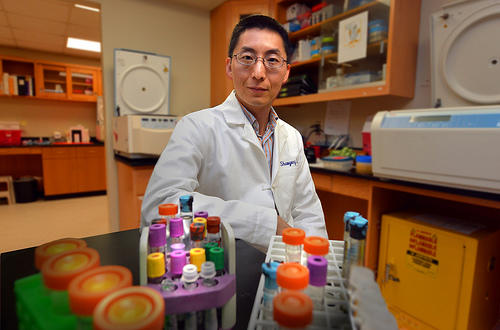
Section Branding
Header Content
Ga. Researcher Identifies Obesity Gene
Primary Content

A researcher at Georgia Regents University has found a gene that is chemically altered in obese people. The next step is to find out if changing that gene can help reduce obesity.
Dr. Shaoyoung Su with the Augusta university’s Medical College of Georgia found that the gene LY86 is highly chemically altered in obese people. He believes such alteration can start in the womb.
For example, in the Dutch famine of 1944, babies born to starving mothers had changes in their DNA that made them better able to survive such deprivation. But when food became more plentiful, that put them at increased risk for cardiovascular disease and diabetes.
Su says it is also possible that a high-fat diet and exposure to some chemicals in early childhood could alter that gene.
The genetic epidemiologist discovered the gene is also associated with increased risk for diabetes, heart disease and cancer.
Now, Su is working to understand whether altering LY86 can fight obesity and other diseases.
